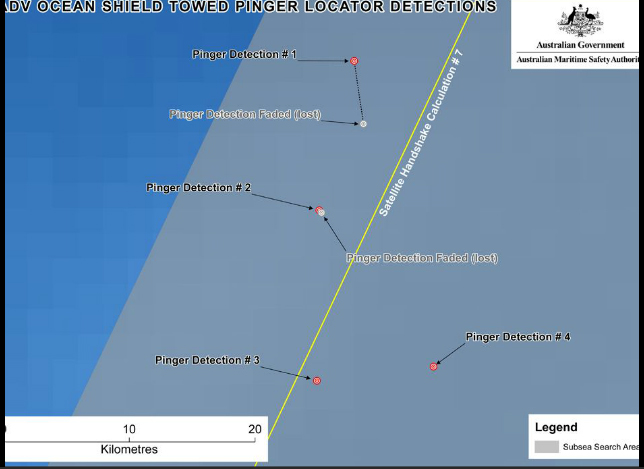

An Australian search vessel has picked up two more signals from what could be the black box from missing Malaysia Airlines flight MH370. (Photo/ABC.net.au)
An Australian search vessel has picked up two more signals from what could be the black box from missing Malaysia Airlines flight MH370. [Special coverage]
The man in charge of the search, retired Air Chief Marshal Angus Houston, said the Ocean Shield picked up the traces on Tuesday afternoon and late on Tuesday night Perth time.
He said he now believed the search was closing in on the area of MH370's "final resting place".
The planned search area has been reduced over the past few days and now covers 75,000 square kilometres.
Air Chief Marshal Houston says he is confident the search is in the right area.
"So I think we're looking in the right area, but I'm not prepared to confirm anything until such time as somebody lays eyes on the wreckage," he said.
Air Chief Marshal Houston said the Ocean Shield would be looking to pick up more transmissions which would help to better pinpoint where the signal was coming from.
He said once the search area had been narrowed down, searchers could then find something in a "matter of days".
"Hopefully with lots of transmissions we'll have a tight, small area and hopefully in a matter of days we will be able to find something on the bottom that might confirm that this is the last resting place of MH370," he said.
The reduced search area has also led to a boost in visual search operations on the ocean surface. Up to 11 military aircraft, four civil aircraft and up to 14 ships are involved in the search.
Both signals picked up yesterday lasted just over five minutes.
Air Chief Marshal Houston says the signals have helped crews further define the search area, and he believes they are now closing in on the plane.
The signals are becoming weaker and Air Chief Marshal Houston says that is most likely because the batteries are beginning to run out.
He says he believes the search is "not far away" from deploying an autonomous underwater vehicle to conduct an underwater search.
An underwater search could present its own challenges, Air Chief Marshal Houston said.
"I'm informed by experts that there's a lot of silt down there," he said.
"That could complicate the search because the silt on the bottom of the ocean can be very thick and things disappear into it and it makes a visual search underwater very difficult."
He says an underwater search can take up to six times longer to cover the same area as a search on the surface.
Copyright ©1999-2018
Chinanews.com. All rights reserved.
Reproduction in whole or in part without permission is prohibited.